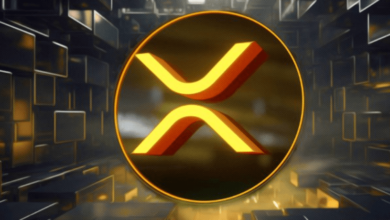Non-Custodial Wallets vs Custodial Wallets: What’s the Difference?

Discover the key differences between custodial and non-custodial cryptocurrency wallets. Find out about security, ease of use, control, and what suits you best.
Chainalysis’ “2024 Crypto Spring Report” revealed that over 400 million crypto wallets currently hold a positive balance. These wallets are unlike regular wallets that hold cash or cards, and they don’t hold your cryptocurrency, either. Instead, they provide a platform through which you can access and transact with your crypto on the blockchain.
While several types of wallets are in use, they can all be divided into two categories: custodial and non-custodial.
What Are Custodial Wallets?
Custodial wallets are digital wallets where a third party, typically a cryptocurrency exchange or platform, holds and manages the private keys to your assets. Essentially, you entrust the security and control of your cryptocurrency to another entity.
With custodial wallets like Coinbase or Binance, you don’t directly control your private keys. The keys are stored on the platform’s servers, and users log in with a username and password to access their funds.
Pros of Custodial Wallets:
Ease of Use: Custodial wallets are generally more beginner-friendly. The platform handles security and technical tasks like safeguarding your private keys.
Account Recovery: If you forget your password, the platform can help you recover access to your account.
Integrated Services: Many custodial platforms provide additional services, such as trading, staking, or yield farming, making it convenient to manage your assets in one place.
Cons of Custodial Wallets:
Lack of Control: You don’t have direct control over your private keys, so you don’t have full ownership of your cryptocurrency. Your assets could be at risk if the platform experiences a security breach.
Trust in Third Parties: You must trust the platform to manage your funds securely and ethically. If the company goes bankrupt, faces legal issues, or experiences a hack, your assets could be frozen or lost.
Limited Privacy: Custodial platforms often require users to undergo Know Your Customer (KYC) procedures, which doesn’t align with cryptocurrency’s privacy-focused ethos.
What Are Non-Custodial Wallets?
In contrast, non-custodial wallets like Best Wallet give you full control over your private keys and cryptocurrency. When you use a non-custodial wallet, you are the only one with access to your private keys; no third party can manage your funds.
Pros of Non-Custodial Wallets:
Full Control and Ownership: With non-custodial wallets, you own your private keys, so you have complete control over your assets. Nobody can freeze or access your funds.
Enhanced Security: Since no third party holds your private keys, non-custodial wallets are generally more secure against exchange hacks and other external threats.
Privacy: Non-custodial wallets typically don’t require KYC, giving you more anonymity and control over your personal information.
Cons of Non-Custodial Wallets:
Responsibility for Security: While non-custodial wallets provide more security, they also put the responsibility on the user. If you lose your private keys or recovery phrase, you won’t be able to access your funds, and there’s no way to recover them.
More Complex: Non-custodial wallets can be more intimidating for beginners due to the technical aspects of managing private keys and ensuring proper backups.
Limited Support for Account Recovery: Since there’s no third party involved, if you forget your password or lose access to your private keys, no one can help you recover your account.
Which Wallet is Best for You?
The choice between custodial and non-custodial wallets ultimately depends on your needs and experience with cryptocurrencies.
If you’re new to crypto and want a simple, user-friendly experience, a custodial wallet might be your best option. They handle security and allow for easy account recovery, making them ideal for beginners.
However, if you have more experience with cryptocurrency and prioritise privacy, control, and security, a non-custodial wallet is likely the better choice. You’ll be responsible for your own security but have full ownership of your assets.




